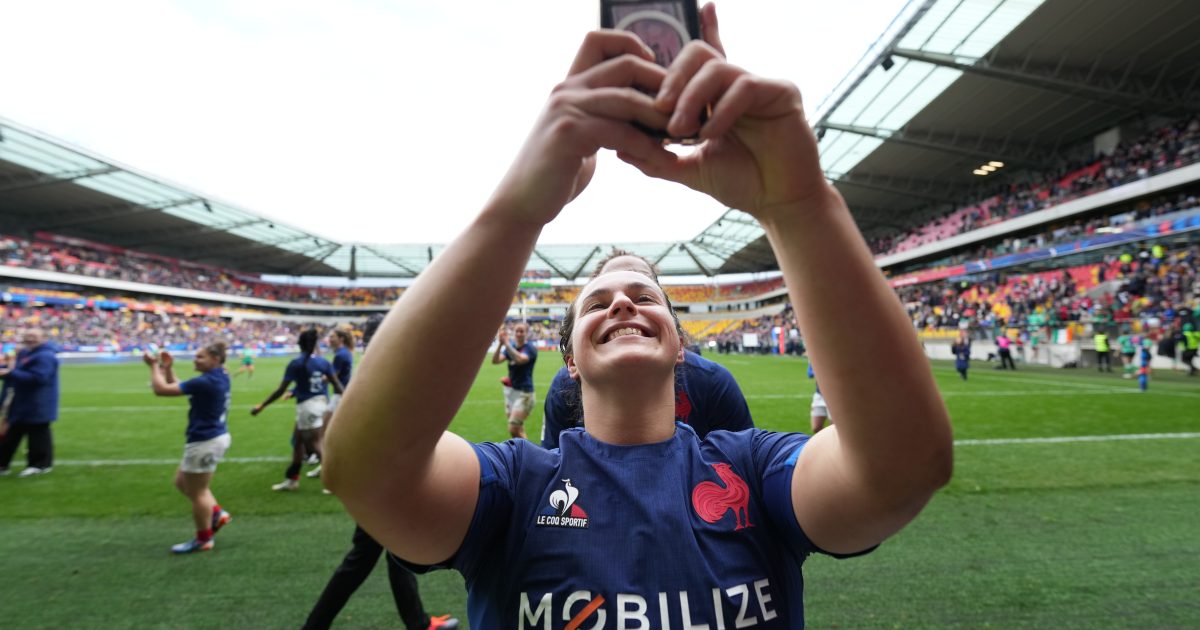France Rugby assume d'occuper les « territoires pauvres » en rugby féminin

En organisant un match du Six Nations féminin au Mans puis les finales des compétitions fédérales à Bourgoin-Jallieu, la fédé assume d’amener le rugby féminin là où il n’est pas.
Et ça marche ! Pour le match d’ouverture des Bleues dans le Tournoi des Six Nations féminin 2024 contre l’Irlande, la Fédération Française de Rugby avait jeté son dévolu sur le stade Marie-Marvingt au Mans. Même les joueuses qui ne savaient pas où il se trouvait s’étaient amusées à le localiser sur une carte ou Google Maps.
Dans le Top 15 des meilleures affluences
Samedi 23 mars, c’était alors la première fois que la Sarthe accueillait un match de rugby d’une telle dimension. D’une capacité de 25 064 places, le stade Marie-Marvingt semblait le lieu idéal, même si plus souvent dédié au foot et aux concerts (avec une jauge de 40 000 spectateurs).
La meilleure affluence de l’histoire du stade est actuellement de 24 425 spectateurs (pour un match de coupe de la Ligue entre Le Mans FC et le Paris Saint-Germain en 2019), soit guère plus que l’affiche de Top 14 Stade français vs. SU Agen (24 085) en 2012.

Le 23 mars, 15 559 spectateurs avaient assisté à cette première d’un match de rugby féminin au Mans, ce qui le place dans le Top 15 des meilleures affluences dans cette enceinte sarthoise.
Des records en Elite 1
« Ce sont des territoires en développement de rugby féminin, mais pauvres », explique Brigitte Jugla, vice-présidente de la Fédération Française de Rugby en charge du rugby féminin, dans les colonnes du Dauphiné Libéré ce mercredi 10 avril.
« Du coup, quand l’équipe nationale ou les finales se font sur ces territoires-là, on voit de l’engouement, ça plaît au public. Et puis, ça aide les ligues, les départements, les clubs qui s’investissent sur le féminin. »
La même stratégie sera menée le 8 juin où toutes les finales des compétitions fédérales féminines seront organisées à Bourgoin-Jallieu (Isère) après Bordeaux en 2023 et Grenoble en 2022.
Deux des trois dernières rencontres du Tournoi des Six Nations féminin se dérouleront en France : France vs. Italie dimanche 14 avril à Jean-Bouin à Paris, puis le Crunch France vs. Angleterre le samedi 27 avril à Bordeaux.
Deux records pour des matchs de rugby féminin en Elite 1 ont été battus à quelques jours d’intervalle : 6 025 personnes au stade Michelin pour le match ASM Romagnat vs. Stade bordelais le 24 février dernier ; 6 397 spectateurs pour le match Stade toulousain vs. Blagnac à Ernest-Wallon le 3 mars.


